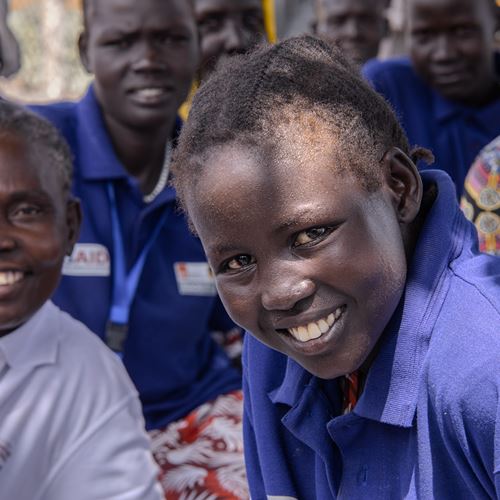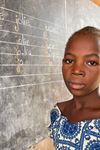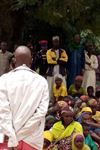
Cameroon
Cameroon is both a major host country to refugees from Nigeria in the Far North region and from the Central African Republic in the eastern regions, and is increasingly a source of displacement as just over 1 million people are internally displaced, including over half of them due to violence in the Northwest and Southwest anglophone regions. These three parallel regional and domestic crises impact nine of the ten regions of Cameroon and have triggered a deterioration in socio-economic and security conditions throughout the country.

Displacement trends
Source: | DRC Foresight
Displacement Trends
Definitions
EDPs: Refugees under UNHCR’s mandate
IDPs: Internally displaced persons
Asylum seekers: People whose claims for refugee status have not yet been determined
Stateless: People not considered as nationals by any State
HST: People living in Host Communities
OIP: Others in need of International Protection
OOC: Others of Concern
Forecast
DRC forecasts are based on a machine learning tool that has been developed to predict forced displacement (IDPs, refugees and asylum seekers) at the national level 1-3 years into the future.
Why we are there
DRC has been present in Adamawa and Eastern Cameroon since 2017 to support Central African refugees. There, DRC implements a graduation approach and works with refugees and vulnerable Cameroonians to find durable solutions. Since January 2023, DRC has been leading a consortium with several international organizations whose activities aim at a comprehensive response to the Central African crisis spanning the border area between Cameroon and CAR.
In 2019, DRC opened a base in the English-speaking Southwest region, affected by an armed separatist insurgency since 2017. DRC and its local partners support internally displaced Cameroonians and their host communities with emergency protection, shelter and essential non-food items, and assistance with food security and livelihood opportunities.
In 2023, DRC extended its activities to Cameroon's Far North to provide a protection, positive peace, governance and economic resilience response to the multidimensional and interconnected crises affecting the region. Together with its local partner, DRC aims to support the many internally displaced people as well as refugees from Chad and Nigeria.
What we do
In Adamawa and Eastern Cameroon, DRC implements sustainable solutions in partnership with local stakeholders for Central African refugees and host communities.
Our projects aim to meet the immediate and long-term needs of the populations, through a graduation approach, by equipping them in community-based protection and peaceful conflict management, conducting campaigns for child protection and against GBV, encouraging social cohesion, strengthening their economic capacities, the financial inclusion of the most vulnerable and stimulating entrepreneurship, while supporting good governance practices.
In the South-West region since 2019, DRC has been assisting refugees as well as IDPs who have been victims of the Anglophone crisis raging since 2017.
Given the severity of the crisis and the urgency of the needs, DRC's humanitarian response is designed to be rapid, multi- sectoral and sustainable. Working in partnership with local CSOs, DRC is responding to the need for emergency shelter/NFI kits in rural and urban areas through various modalities (voucher, in-kind, cash) and protection incidents with a focus on the vulnerability of the youngest and women (psychosocial support, host family training, menstrual hygiene, life skills for adolescents, API, SFN, CM, civil documentation). DRC also aims to strengthen the livelihoods of the most vulnerable via IGAs, to provide food assistance through vouchers, and conducts sectoral studies on the needs of the area. In addition, since 2023, DRC has extended its area of intervention to the communities in the South-West, and aims to expand into the North-West with local partners.
In the Far North, we work with communities and local actors.
There, DRC promotes social cohesion and peacebuilding by strengthening local conflict management capacities, improving the resilience and sustainable economic integration of young people and women affected by conflict, and supporting local governance to strengthen community stabilization and resilience.
Working in collaboration with


Bureau for Humanitarian Assistance

BPRM (US Bureau of Population, Refugees, and Migration)

Danish Ministry of Foreign Affairs

The Swiss Agency for Development and Cooperation

CDCS (Centre de Crise et de Soutien) du MEAE

AICS (Italian Agency for Development Cooperation)
Contact

Yann
Faivre
Executive Director West & North Africa and Latin America
Benoit
Couturier
Country Director





